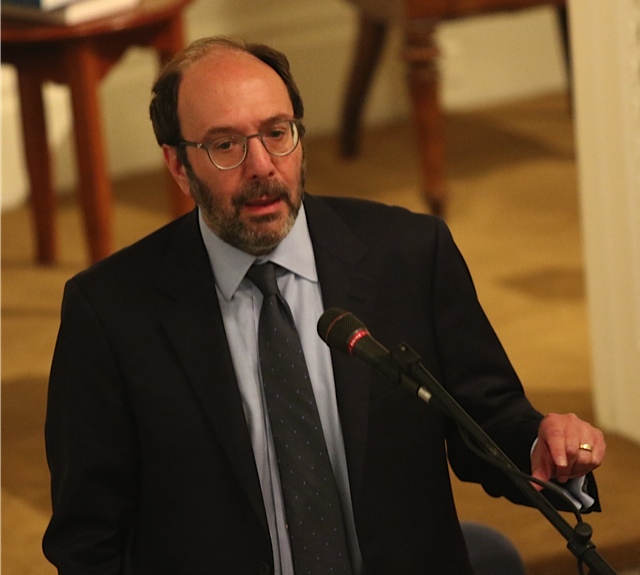A group made up of Westminster Choir College alumni and others plans to go to state court and before the state Department of Education to stop the sale of the music school to a foreign buyer, the group’s lawyer said on June 25.
Members of the Westminster Foundation of Princeton, New Jersey Inc., also made up of faculty members, financial donors and past college board members, already are suing in federal court in New York to keep Rider University, Lawrenceville, from selling the school and campus to Kaiwen Education.
The foundation intends to join the lawsuit the Princeton Theological Seminary filed against Rider University earlier this year in Mercer County to fight the sale, attorney Bruce I. Afran said at a press conference.
In addition, the foundation plans to act as a formal objector before the state Department of Education, where Westminster will need to be certified as a degree-granting college under the new ownership.
Afran said they would go before the Department of Education to demonstrate Kaiwen is “not a competent buyer” based on its track record in China, with loses of $5 million every quarter for the past five years. Kaiwen operates two K-12 schools, and previously made steel bridges, but has no experience in higher education.
Rider University is closing in on a deal for Kaiwen to buy the school and the 23-acre-campus in Princeton for $40 million. Last week, the university announced it has signed a “purchase and sale agreement” with three subsidiaries of Kaiwen, although the agreement is not finalized.
In a news release, Rider University said last week the purchase price “is subject to transaction adjustments.” Kaiwen plans to spend $16 million over five years “for working capital and capital expenditures,” the release said.
Rider University has said both sides will look to conclude the deal by July 2019; the university will continue to operate the music school for one more academic year.
“As we have stated on many occasions, the future of Westminster Choir College is not with Rider University, and we strongly believe Kaiwen Education provides the best, and only, opportunity at this time for Westminster Choir College to continue carrying on its mission of musical excellence,” Rider spokeswoman Kristine A. Brown said.
“The Rider University Board of Trustees unanimously approved the Purchase and Sale Agreement (PSA) so Westminster can move forward with the next chapter of its long history. We are strongly encouraged by the progress made to date with Kaiwen Education and its plans for Westminster Choir College,” Brown said.
“We are grateful for the many messages of encouragement we have received from those who understand and support our goal of transitioning Westminster Choir College to a new owner so it can be sustained and continued in the future.
“Over the coming year, we will work diligently to conclude this transaction so Westminster has the chance to continue its mission of educating future generations of talented musicians. We welcome the assistance of the Westminster community in making this a successful transition,” Brown said.
But Afran seized on details in the university’s news release which states Kaiwen would agree to operate Westminster, under its current curriculum, for five years and operate the campus for 10 years.
“This transaction does not provide any guarantee for the continued, long-term existence of Westminster Choir College,” Afran said.
He referred to the merger agreement between Rider University and Westminster from the early 1990s in which university representatives pledged to “continue” the choir college’s educational mission.
“It can’t end the program, that’s the price Rider paid for being given the valuable asset of an entire college for free,” Afran said. “If Rider refuses to carry out the terms of this agreement, that school goes back to its independent status.”
Allowing Westminster to be independent again is one of the outcomes the foundation would accept, Afran said. As an independent college, a new board of directors would have to be created, he said.
Other scenarios the foundation would accept include Westminster being affiliated with another college or university or for Rider University to keep operating it as it has been doing, he said.
Rider University has said it cannot close on the sale of Westminster until the two lawsuits are settled. With it unclear if the lawsuits will be resolved by July 2019, Afran said the university would have to continue operating Westminster even past that time.
“No court in this country will allow Rider to shut Westminster down under the terms of this contract,” he said.
Afran was joined at the press conference by representatives of the Rider University chapter of the American Association of University Professors, the faculty union.
Jeffrey Halpern, a union official, said his union intends to arbitrate the future layoff of all Westminster faculty members.
“There can be no sale if the arbitrator finds they have failed to meet the contractual requirement for laying off the faculty,” Halpern said.

